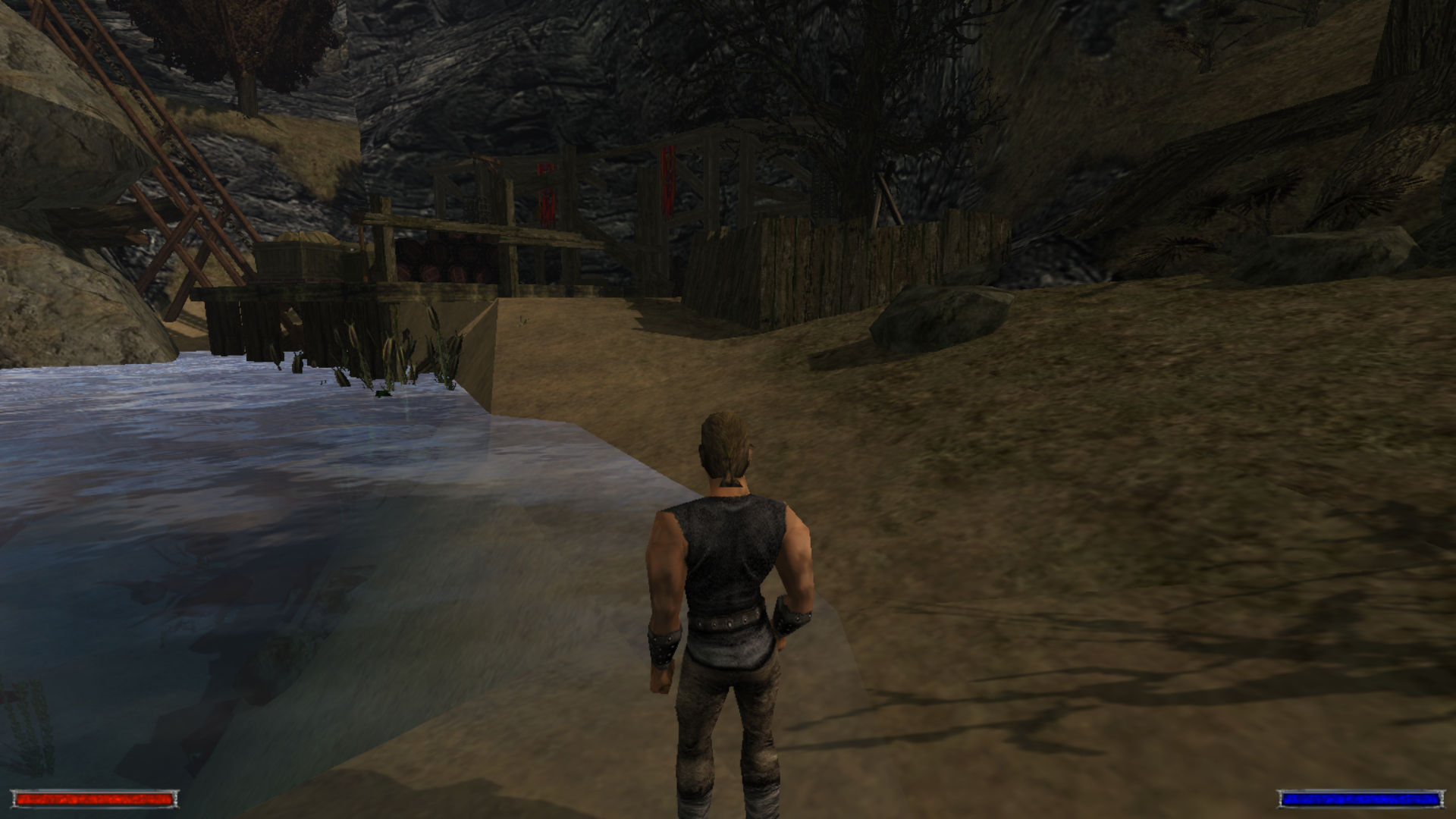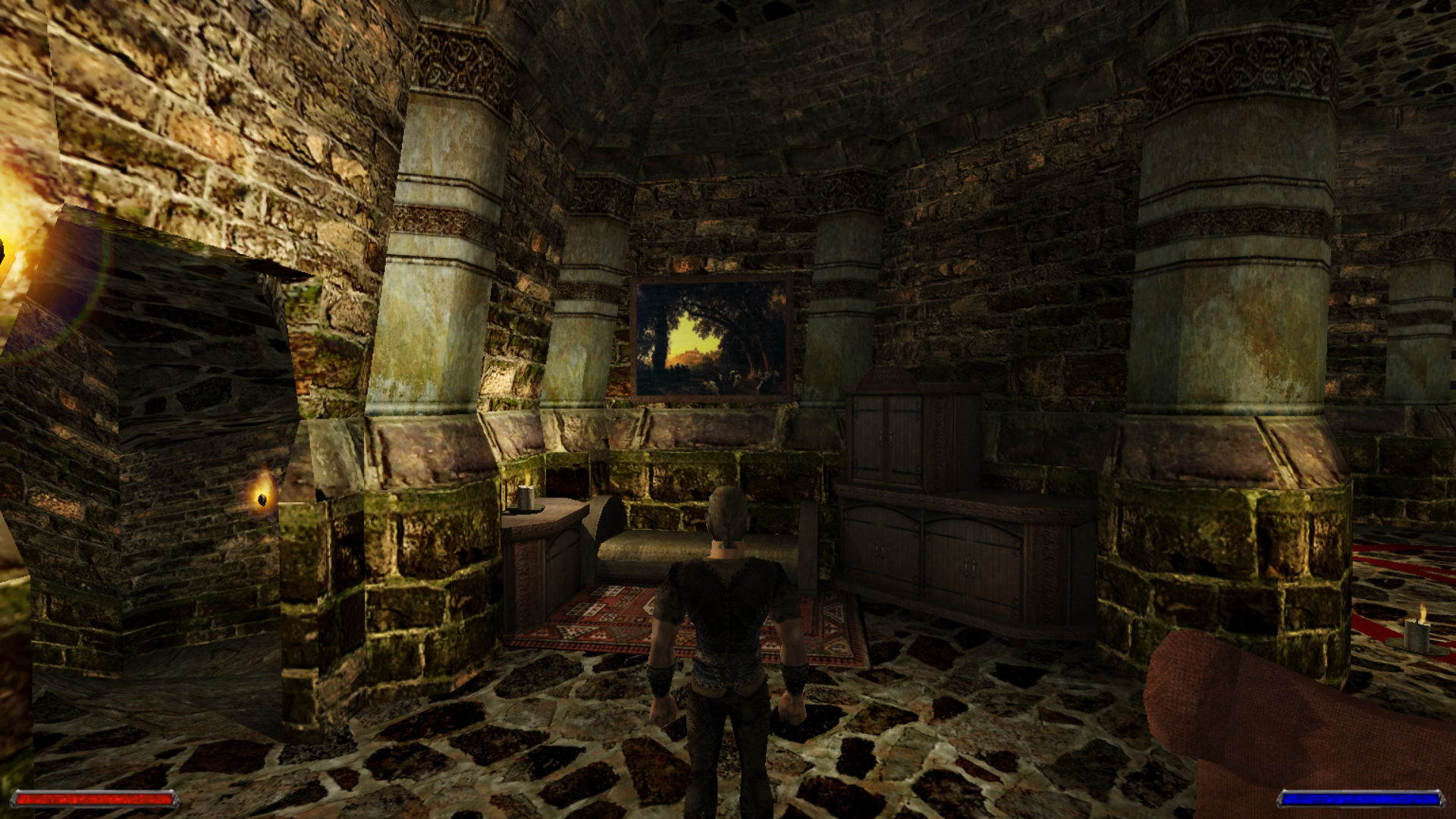Search
[{{{type}}}] {{{reason}}}
{{/data.error.root_cause}}{{{_source.title}}} {{#_source.showPrice}} {{{_source.displayPrice}}} {{/_source.showPrice}}
{{#_source.showLink}} {{/_source.showLink}} {{#_source.showDate}}{{{_source.displayDate}}}
{{/_source.showDate}}{{{_source.description}}}
{{#_source.additionalInfo}}{{#_source.additionalFields}} {{#title}} {{{label}}}: {{{title}}} {{/title}} {{/_source.additionalFields}}
{{/_source.additionalInfo}}- Details
- Category: Software
- By Daniel Cullen
- Hits: 1099
OpenGothic

OpenGothic
Available On: Linux, macOS, Microsoft Windows
Price: Free and open source
Note: For most updated releases, check the test builds. Pre-releases are more stable but may not include the latest improvements and bug fixes. The lead developer was kind enough to answer some questions about this engine and confirmed it can be used to play Gothic 2 (with the Night of the Raven expansion) to completion. Gothic 1 (and Gothic 2 minus expansion) should be completable and this project has received community support for Gothic 1, but this has never been extensively tested.
In the early days of the 2000s, a new game called Gothic was released in 2001 by German developer Piranha Bytes. It was a revolutionary RPG on a new engine called the ZenGin. It had many advanced features for its time, but the engine was not very stable despite improvements made for its sequel. Fans can use certain mods to prop up the original engine in the first two games, or they can try a reverse-engineered OpenGothic, meant to provide the same gameplay with modern quality standards.
The ZenGin (not to be confused with the XnGine by Bethesda Softworks) was conceived in 1997 and would be developed entirely in-house by Pirahna Bytes for the first Gothic game. It featured many advanced concepts for its time, including dynamic schedules for NPC actions, fully detailed weather and day/night cycle, and seamless transitions with almost no loading screens anywhere save for a few dungeon transitions. Given this was meant to be an open-world game released when 3-D open-world games were barely a thing, these features were quite revolutionary. An updated version of the same engine would be used for Gothic II and its expansion Night of the Raven.

Strong Points: Excellent modernized version of the Gothic 1 and 2 game engine mechanics without the bugs
Weak Points: Mod support is not very mature
Unfortunately, the ZenGin has not aged well. Despite giving it support for fan mods that have greatly enhanced its ability to stay stable, the engine has poorly kept pace with advancing technology and many modern game engines can now do far better in everything they set out to accomplish. A modernized 2024 remake of Gothic 1 in Unreal Engine 5 is in development at the time of this writing, but fans of the games in their original form are stuck with the clunky original engine, Switch ports of the first two games (which also inherit the engine issues mentioned), or OpenGothic.
OpenGothic is a fan-made, clean-room reverse-engineered project to make a modernized game engine that can natively read the Zen file format used by the ZenGin while reimplementing the games it was meant to support using modern coding techniques without the flaws and limitations that underpinned the ZenGin. It is a cross-platform engine with support for Windows, Linux, and macOS. It can fully support Gothic 1 and 2 (the latter with or without the Night of the Raven expansion).
A few things must be noted about its engine implementation. It was based on the improved engine of Gothic 2's features and thus backports many of the advancements of Gothic 2 to Gothic 1 if you play the first game. While it's not intended to do more than be a faithful reimplementation of the first two games in terms of their original content (which must be legally sourced, OpenGothic provides none of their assets), it does feature a lot of quality-of-life improvements. The controls have been modernized to avoid the issues of the original engine's imperfect mouse and keyboard setup. The graphical engine is based on the improved features of Gothic 2, and it has support for contemporary hardware. It has the optional inclusion of many advanced techniques such as mesh shaders and ray tracing, though they are not required.

There are some limitations. The game engine target of OpenGothic is 64-bit systems only, with no plans or support for 32-bit. The mod support added to the original games (especially the Steam port) is not implemented, due to its requirements of DLL file calls (which the developer considers unwise from a security perspective). The codebase is also not remotely similar, so the standard mod support used by the official engines would not be compatible. There is support for mods that use the base scripting that shipped with the original engines and texture/model/sound replacers, but that is all at the moment. Further support for modding is planned but not a high priority, ensuring the stability of the engine and eliminating any bugs is paramount as of the time of this writing.
There are no known legal issues with OpenGothic. It is a fully open-source project that requires legal assets for use, and it is completely free. While it must be downloaded from GitHub, it has very simple instructions for setup, and I found myself quickly loading up Gothic 1 and 2 with less than a minute or two of setup. According to the developer comments, while it does fully support Gothic 1 and 2, it was primarily developed with support for Gothic 2 (with Night of the Raven), though based on my own experiences Gothic 1 was quite playable with no issues of note (though I did not attempt to play the whole game to completion, so please bear this in mind). It does default to the Gothic 2 controls, see the documentation for restoring the Gothic 1 controls when playing Gothic 1 if you want the truly classic experience, though most would argue the Gothic 2 controls are a great improvement. The player may find it necessary to rebind keys for the mouse in Gothic 1 though.
Given the ZenGin is not getting any younger and even now struggles to stay stable, OpenGothic is a perfectly acceptable alternative to enjoy some of the finest open-world RPGs in the Gothic series, and while not as moddable yet, is perfect for the vanilla purist Gothic fan.








